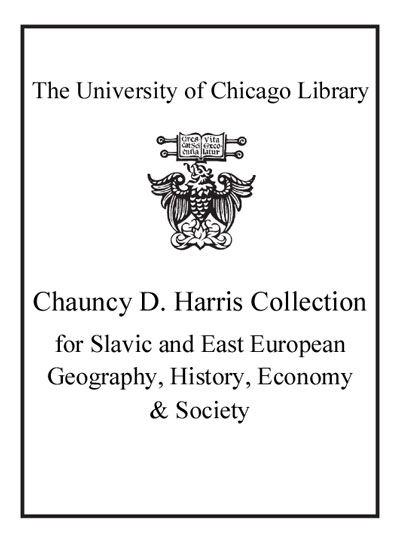Review by Choice Review
This appealing volume provides a sweeping narrative history of the Russian city of St. Petersburg from its founding in 1703 until the present. Founded by Tsar Peter the Great to be a "window on the west," St. Petersburg (sometimes named Petrograd and Leningrad) has been the leading political, intellectual, and cultural center of Russia for most of its existence. Written for nonspecialists, this book succeeds in conveying a broad array of information about the life of the city and its inhabitants without delving too deeply into any one topic. While the narrative structure is based on the major political events that influenced the life of the city, George manages to incorporate discussions about St. Petersburg's unique cultural life, as well as descriptions of its architecture, social life, educational and economic development, and other topics. He devotes considerable attention to the brilliant cultural life of the city during the 19th and early 20th centuries, when it was home to Pushkin, Gogol, Dostoevsky, Mussorgsky, Tchaikovsky, Blok, Nabokov, and many other well-known figures in music, literature, and art. ^BSumming Up: Recommended. General collections and undergraduate and graduate students. N. M. Brooks New Mexico State University
Copyright American Library Association, used with permission.
Review by Booklist Review
St. Petersburg was commanded into existence by Peter the Great, and its inherent artifice has made it one of the world's most storied cities, the stage for political and artistic dreamers. In this comprehensive chronicle, the authors introduce these figures, who were dissatisfied in some way with Russian traditions. Throughout, the Georges devote attention to St. Petersburg's beguiling physical appearance--canals, bridges, promenades, and palaces--but their most lively writing hones in on the interplay between power and intellect, reaction and reform. Presenting capsule biographies of each type in each era (such as Czar Nicholas I and poet Alexander Pushkin), they tend to describe more than analyze, which is the right tack to reach their readers: those interested in St. Petersburg but not yet steeped in its tumult of war, revolution, and aesthetics. The late historian W. Bruce Lincoln (Sunlight at Midnight: St. Petersburg and the Rise of Modern Russia, 2001) owned this audience; the popularity of his many works augurs well for the Georges' solid survey. --Gilbert Taylor Copyright 2003 Booklist
From Booklist, Copyright (c) American Library Association. Used with permission.
Review by Publisher's Weekly Review
The Russian city of St. Petersburg has long been celebrated as Russia's window onto the West. In this detailed volume, the Georges attempt to make the city a window onto Russia as well. Arthur George, a businessman who lived for two decades in Russia, displays a thorough knowledge of published work on the country and the city, which is celebrating its 300th anniversary this year. From its founding in the early 18th century by Peter the Great as Russia's "western" city to its leading role in 19th-century cultural life, the Russian Revolution of 1917 and WWII (when, as Leningrad, it suffered a horrific Nazi siege), the Georges barely miss a beat. St. Petersburg has long played a central role in Russian life and the seemingly never-ending pain of its people. As the authors put it, "No modern city has experienced such excruciating upheavals, violence, losses of its people, and suffering as Petersburg/Petrograd/Leningrad experienced in the first half of its 20th century." The Georges cover it all, focusing on political, economic and cultural matters, with a few overtures toward social history. In fact, the book is particularly strong, like the city it covers, on intellectual life, describing such personalities as the poet Anna Akhmatova. But history is not just a matter of compilation, it is one of interpretation as well, and here the Georges fall short. On the whole, they fail to convincingly interpret their information-how the history of St. Petersburg has been different from Moscow's, for example-and many readers are likely to feel lost in the mass of details provided. (Sept.) (c) Copyright PWxyz, LLC. All rights reserved
(c) Copyright PWxyz, LLC. All rights reserved
Review by Library Journal Review
St. Petersburg (Leningrad in Soviet times) is celebrating its 300th anniversary in 2003. The city was built expressly to open imperial Russia to Western European influence, though the extent of its openness has depended on the whim of the current ruler. These authors are well qualified to tell the city's story: Arthur George (Joint Ventures in the Soviet Union) is an American attorney who studied and worked in Leningrad, and his wife, Elena, is a native of the city. They relate St. Petersburg's history through the people who influenced its growth (the tsar and the royal family, as well as the architects and builders they employed) and those who were influenced by it (writers, performing artists, and visual artists), from its 1703 founding to the present. Unfortunately, these are the stories of only the top few percent of the city's population; the authors extend only a perfunctory nod to the lower-level government bureaucrats and factory workers who also lived there. This work is not intended for the casual reader; the wealth of detail, scholarly apparatus, and matter-of-fact presentation could overwhelm many. The specialist, meanwhile, will find only a recital of established facts. Bruce Lincoln's Sunlight at Midnight is more accessible but does not cover the Soviet period. This could be useful for larger collections needing a summary of Russian history but is otherwise optional. (Index not seen.)-Marcia L. Sprules, Council on Foreign Relations Lib., New York (c) Copyright 2010. Library Journals LLC, a wholly owned subsidiary of Media Source, Inc. No redistribution permitted.
(c) Copyright Library Journals LLC, a wholly owned subsidiary of Media Source, Inc. No redistribution permitted.
Review by Choice Review
Review by Booklist Review
Review by Publisher's Weekly Review
Review by Library Journal Review

